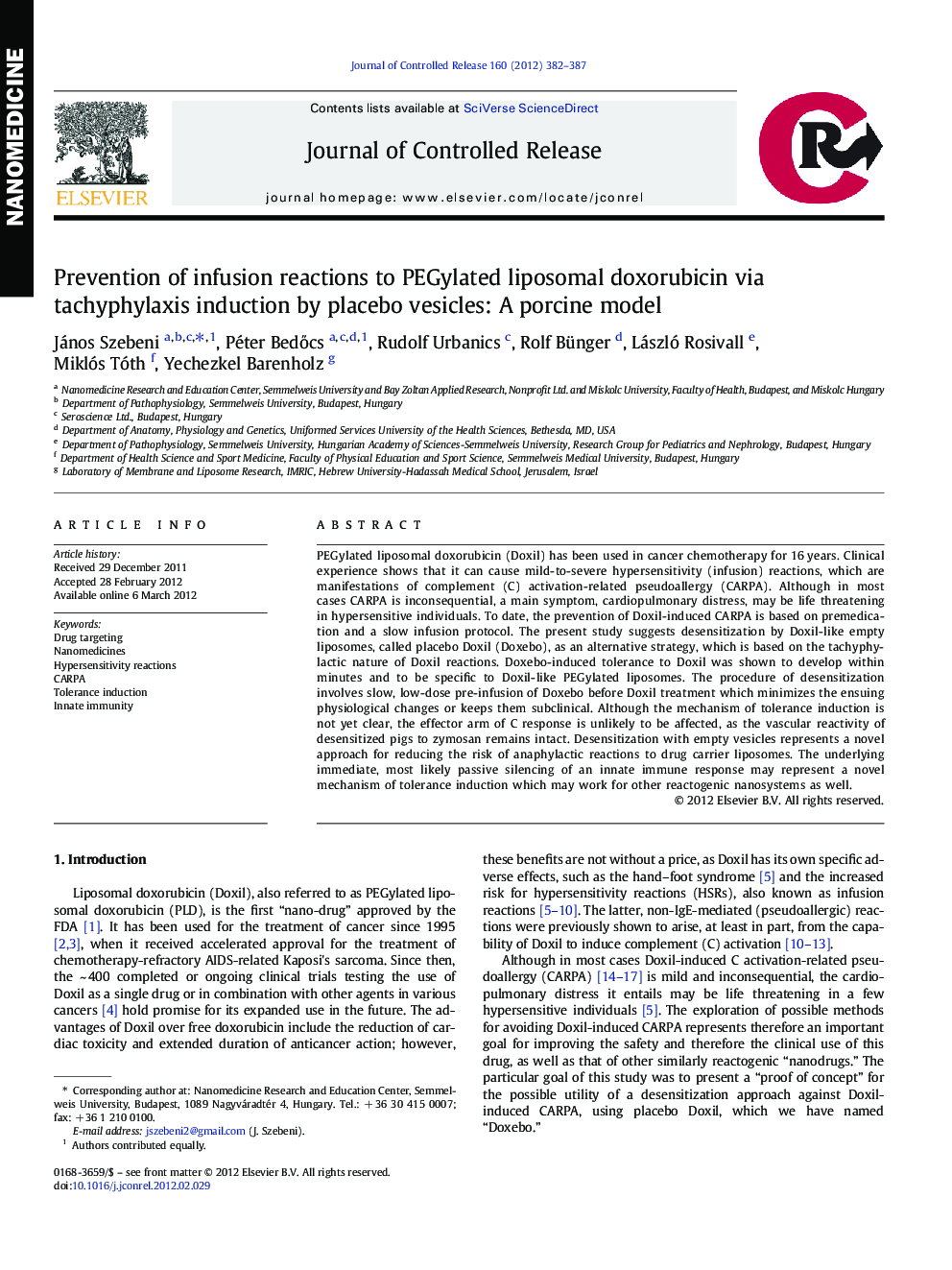| Article ID | Journal | Published Year | Pages | File Type |
|---|---|---|---|---|
| 1424639 | Journal of Controlled Release | 2012 | 6 Pages |
PEGylated liposomal doxorubicin (Doxil) has been used in cancer chemotherapy for 16 years. Clinical experience shows that it can cause mild-to-severe hypersensitivity (infusion) reactions, which are manifestations of complement (C) activation-related pseudoallergy (CARPA). Although in most cases CARPA is inconsequential, a main symptom, cardiopulmonary distress, may be life threatening in hypersensitive individuals. To date, the prevention of Doxil-induced CARPA is based on premedication and a slow infusion protocol. The present study suggests desensitization by Doxil-like empty liposomes, called placebo Doxil (Doxebo), as an alternative strategy, which is based on the tachyphylactic nature of Doxil reactions. Doxebo-induced tolerance to Doxil was shown to develop within minutes and to be specific to Doxil-like PEGylated liposomes. The procedure of desensitization involves slow, low-dose pre-infusion of Doxebo before Doxil treatment which minimizes the ensuing physiological changes or keeps them subclinical. Although the mechanism of tolerance induction is not yet clear, the effector arm of C response is unlikely to be affected, as the vascular reactivity of desensitized pigs to zymosan remains intact. Desensitization with empty vesicles represents a novel approach for reducing the risk of anaphylactic reactions to drug carrier liposomes. The underlying immediate, most likely passive silencing of an innate immune response may represent a novel mechanism of tolerance induction which may work for other reactogenic nanosystems as well.
Graphical abstractFigure optionsDownload full-size imageDownload high-quality image (83 K)Download as PowerPoint slide
